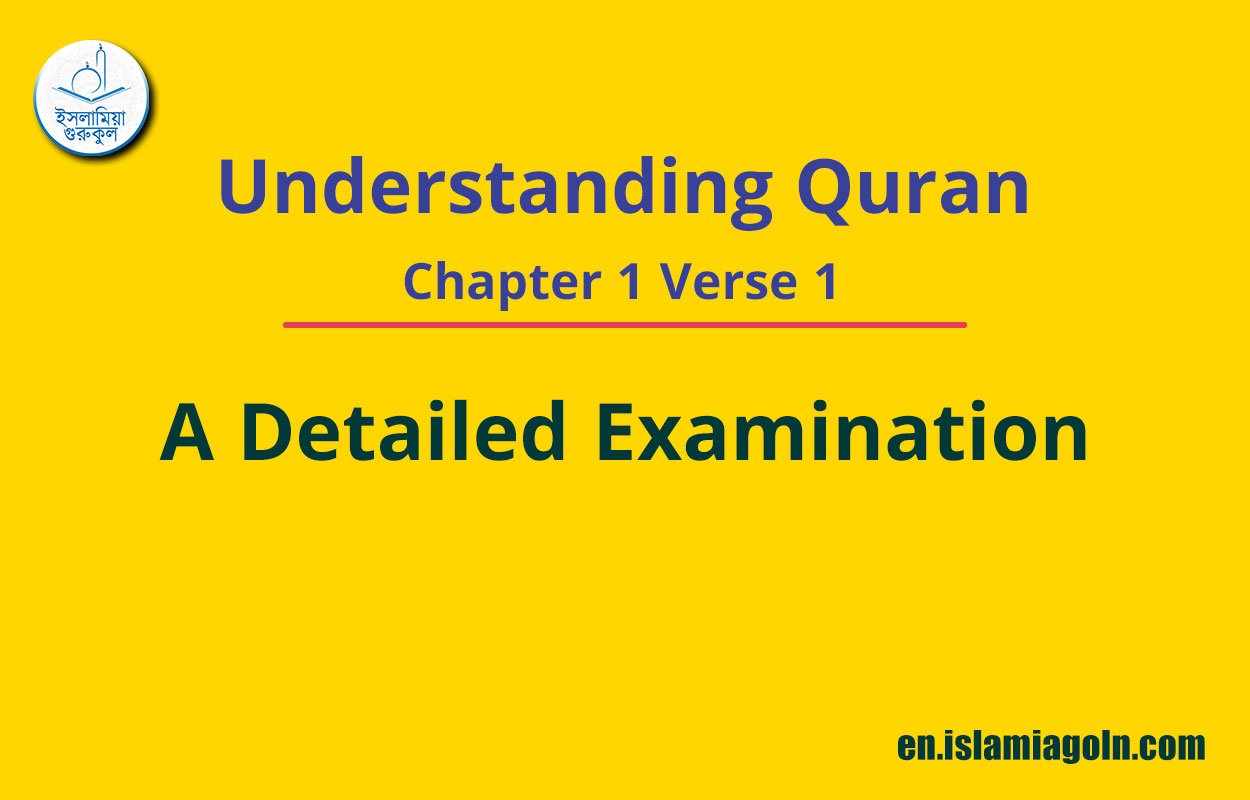The Quran is a complex and nuanced text filled with spiritual guidance, societal codes of conduct, and profound wisdom. Its opening verse, Surah Al-Fatiha 1:1, is a remarkable point of entry to this sacred text for Muslims worldwide. This article offers an in-depth exploration and analysis of this verse.
Understanding Quran Chapter 1 Verse 1: A Detailed Examination

The Verse
In transliteration, the verse is: “Bismillahir Rahmanir Raheem.”
Translated into English, it reads: “In the name of Allah, the Entirely Merciful, the Especially Merciful.”
Before delving into the verse’s deeper meanings and implications, it’s essential to acknowledge that, like any translation, this rendering can only approximate the verse’s richness in its original Arabic.

Breakdown of the Verse
Let’s break down the Arabic words used in the verse:
- Bismillah: This word is a combination of “bi,” which means “with” or “by means of,” “ism,” which means “name,” and “Allah,” the Arabic term for God. Collectively, “Bismillah” translates to “In the name of Allah” or “With the name of Allah.”
- Ar-Rahman: This is one of the names of Allah and is usually translated as “the Entirely Merciful.” The root of this word, “Rahm,” means womb, symbolizing compassion, care, and love.
- Ar-Raheem: Another name of Allah, typically translated as “the Especially Merciful.” It is derived from the same root as “Ar-Rahman” and denotes an ongoing, constant, and infinite mercy.

Significance and Interpretation
Each component of this verse has profound implications. It starts by acknowledging the divine authority, Allah, reminding the believer that everything they do should commence with the remembrance of God. It sets the tone for actions to be in the way of righteousness, as dictated by the divine will.
The repetition of divine mercy through the words “Ar-Rahman” and “Ar-Raheem” emphasizes the boundless and unconditional love and mercy Allah has for His creation. This repetition serves as a constant reminder for believers of the infinite compassion of God, promoting hope and humility in their hearts.
While “Ar-Rahman” signifies the vastness of God’s mercy, “Ar-Raheem” specifies that this mercy is also constant and continuously enacted, creating a divine attribute of consistent compassion towards all creation.
The verse, therefore, encapsulates the central concept of Islam: submission to Allah, who is infinitely merciful and compassionate.

Practical Implication
“Surah Al-Fatiha 1:1” is more than just the opening verse of the Quran; it is a mantra repeated by Muslims every day, in every unit of their prayers, and before embarking on everyday tasks or special endeavors. Its frequent recitation serves to instill a constant awareness of Allah’s presence, reinforcing the belief in His divine mercy and compassion.

Conclusion
The opening verse of the Quran, “Surah Al-Fatiha 1:1,” offers a powerful declaration of faith and a reminder of divine mercy and compassion. By beginning with the name of Allah, the Entirely Merciful and Especially Merciful, it sets a tone of hope, peace, and surrender that resonates throughout the Quran. Its importance to believers is highlighted in its ubiquitous use, making it a core tenet of Islamic faith and practice.
